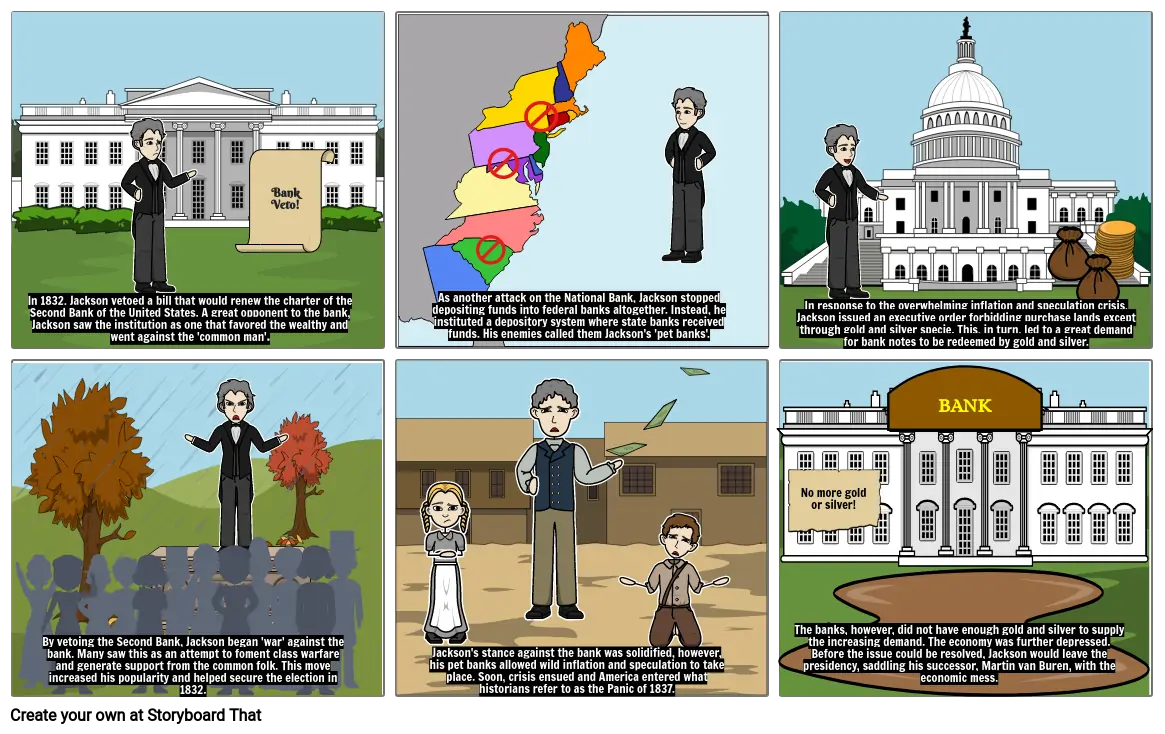Andrew Jackson's Bank War

Storyboard Text
- In 1832, Jackson vetoed a bill that would renew the charter of the Second Bank of the United States. A great opponent to the bank, Jackson saw the institution as one that favored the wealthy and went against the 'common man'.
- Bank Veto!
- As another attack on the National Bank, Jackson stopped depositing funds into federal banks altogether. Instead, he instituted a depository system where state banks received funds. His enemies called them Jackson's 'pet banks'.
- In response to the overwhelming inflation and speculation crisis, Jackson issued an executive order forbidding purchase lands except through gold and silver specie. This, in turn, led to a great demand for bank notes to be redeemed by gold and silver.
- By vetoing the Second Bank, Jackson began 'war' against the bank. Many saw this as an attempt to foment class warfare and generate support from the common folk. This move increased his popularity and helped secure the election in 1832.
- Jackson's stance against the bank was solidified, however, his pet banks allowed wild inflation and speculation to take place. Soon, crisis ensued and America entered what historians refer to as the Panic of 1837.
- No more gold or silver!
- The banks, however, did not have enough gold and silver to supply the increasing demand. The economy was further depressed. Before the issue could be resolved, Jackson would leave the presidency, saddling his successor, Martin van Buren, with the economic mess.
- BANK
Over 30 Million Storyboards Created

